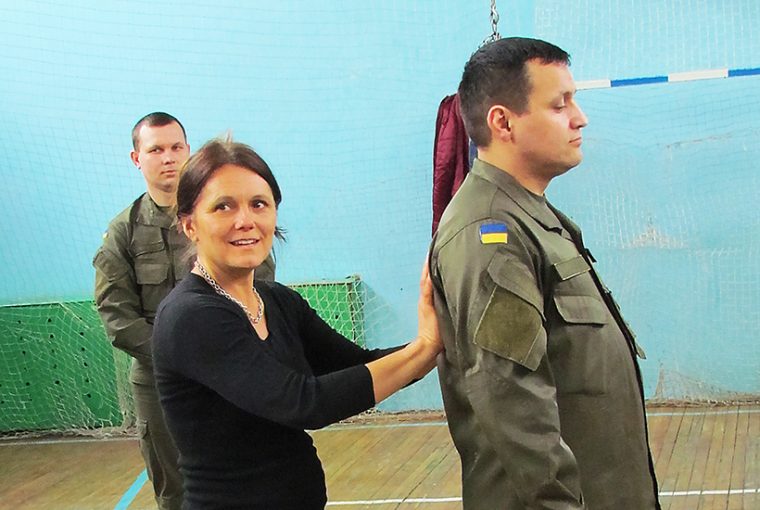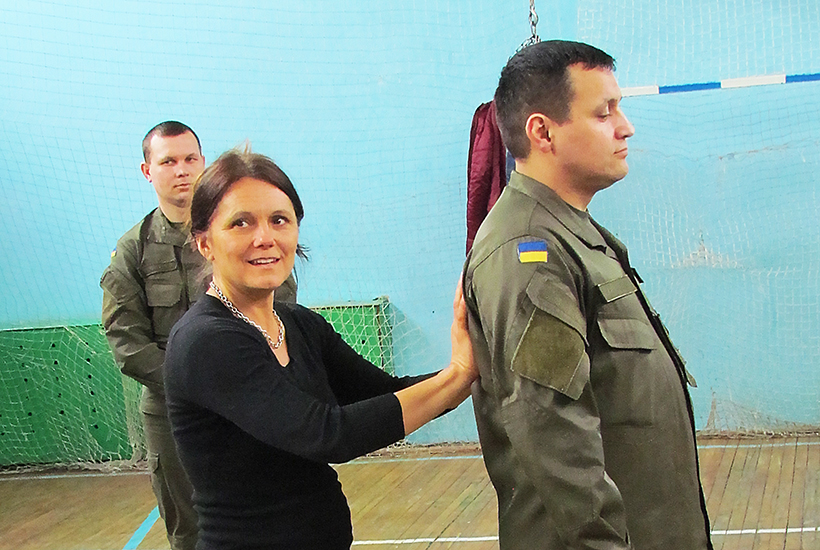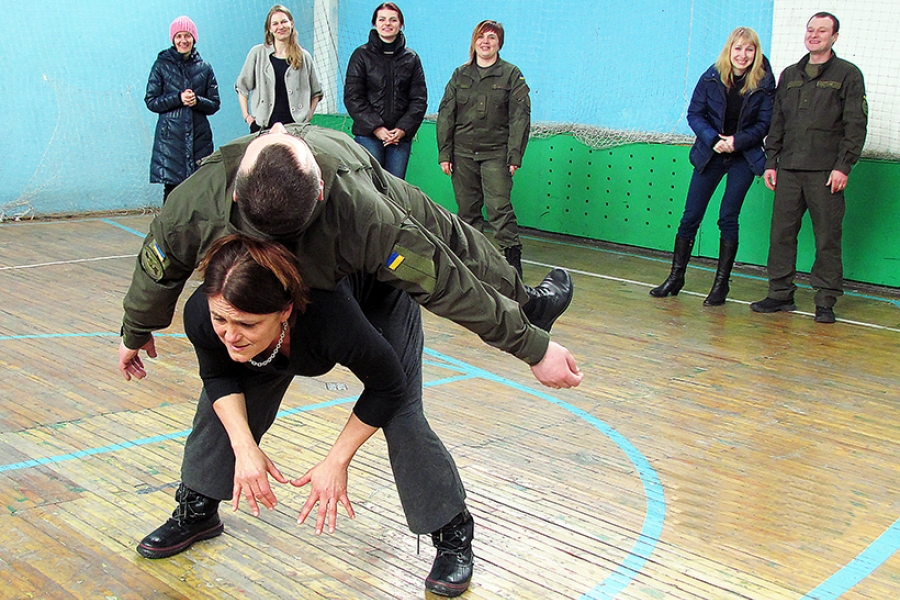Kolcio Leads Somatic Exercises for the Ukrainian National Guard


Wesleyan Professor of Dance and Environmental Studies Katja Kolcio traveled again to Ukraine in April, this time to work with soldiers and psychologists in the National Guard. It was her third trip to the region to teach somatic practices to those undergoing the stress of political conflict, displacement, and combat.
Somatics are “mind-body practices that combine physical activity and motion with deep reflection,” she explained in “Somatics and Political Change: Ukraine’s Revolution of Dignity,” (Contact Quarterly, summer/fall 2016), detailing her first trip to the region after Russia invaded Ukraine in 2014. In June 2015 she had been invited to lead somatic workshops for the volunteers working with refugee families and injured soldiers and offered her first set of classes in Ukraine then.
“One goal of somatics is to become more aware of subtle physical indications of dis-ease before they become acute or chronic issues,” she wrote. “Somatics is also a practice of “sense-making’—of integrating internal experiences with the external environment in order to become more conscious in the present moment.”
Kolcio considers this crucial work for her Wesleyan students, including first-year students “who are away from home for the first time, encountering world-shifting ideas.” Working with the breath and experiencing the body in the environment—its weight, the stress it holds—helps to orient the practitioner in the present moment—and envision new possibilities, make sense of the world in a different way.”
This work of integrating experiences is particularly important for those in regions undergoing crises, Kolcio believes—and it is what she can offer this country where she has familial roots. At the invitation of the National Guard of Ukraine this time, Kolcio returned to implement a somatics program to alleviate the injuries that soldiers sustain in combat.
Offering two-day workshops, Kolcio taught the creative and contemplative physical practices of somatics, as well as the cognitive approaches to build psychological flexibility and stress resistance among soldiers. Some of the techniques included the history of the body, self-awareness, breathing, body weight, muscle tension and movement.
“Various events leave a mark not only in memory but also in the body,” says Kolcio. “Thus, when helping patients recover from traumatic events, it is important to consider not only the memory in a classic sense, but the memory within the body.”
A political science major as an undergraduate, Kolcio places her body work in the context of that country’s history. The peaceful protest of the Revolution of Dignity has helped that country envision “another kind of orientation, one that seemed intent on superseding ethnic, national, and religious definitions,” she wrote in Contact Quarterly.
”What if we treated social-political orientation in the way we approach awareness in a somatic workshop?” she asks in her article. “I believe this is why my somatic workshops are being embraced here. People are seeking new ways of making sense in the world…. Somatics is an individual practice; I also see it as a social movement.” 

